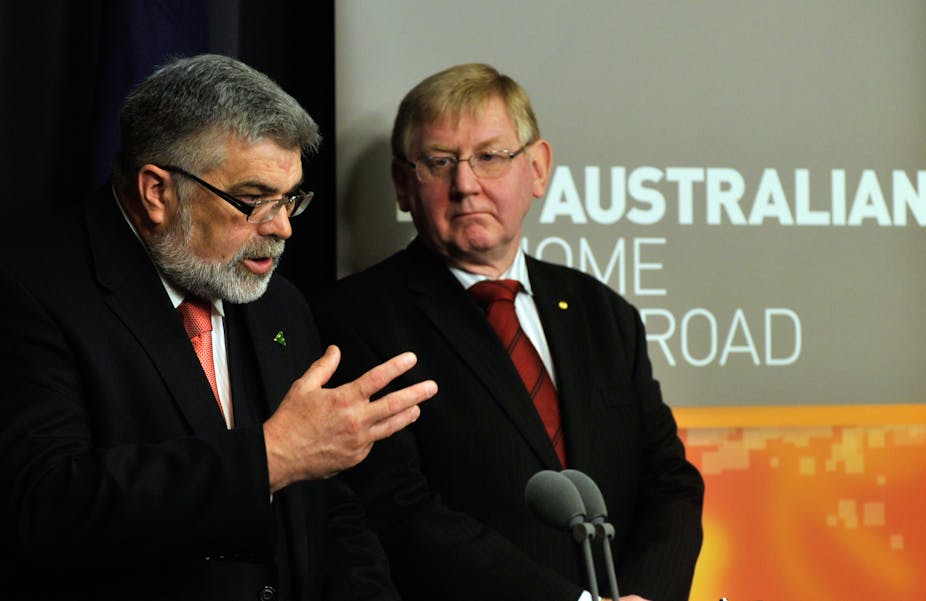The Federal Government’s new Buy Australian campaign comes amid growing concern that further layoffs will follow the loss of 1000 BlueScope jobs and that the mining boom is crushing manufacturing.
But Ministers Kim Carr and Martin Ferguson are wasting their time calling for industry to buy Australian.
The idea that a government should lobby consumers to buy ethnocentrically is nothing new. The Buy Australian campaign has been pushed for nearly 20 years by various governments, although the idea first emerged in the 1920s. The Kiwis have been doing it since 1988 and the British have been doing it since 1931.
While such programs may have a slight impact on consumer preferences, the evidence is pretty clear that they do not make significant differences to market share of locally made products.
Even entrepreneur Dick Smith accepts that the majority of what goes into an Australian supermarket trolley is not made by Australian companies.
Academic research suggests that consumers are more concerned about product quality and price than country of origin. So why do we expect them to buy Australian?
Aside from the fact such campaigns have little real effect, we need to keep in mind that when governments are keen to join the WTO and reduce trade barriers, such programs are nothing more that hypocritical public relations exercises for the electorate.
Governments are clearly wasting tax revenue on a marketing campaign that is unlikely to have any real effect: perhaps aside from patronising unions.
The recent demand by the Federal Government for Australian businesses to buy Australian is no different. These businesses are expected by their shareholders to buy materials at the best possible price in order to get the best return for their money.
As many of these shareholders are offshore, no CEO is going to be popular if he or she allows a purchasing department to use company revenue to subsidise Australian industry.
The government who is making this demand is the same government that complained when the United States implemented a “Buy American” campaign as part of its financial stimulus bill.
If we want to reduce trade barriers and become part of the global community, then we have to accept that jobs will be lost in industries that are not competitive.
Unfortunately, the difference between being competitive and not being competitive could be as simple as a swing in the value of the dollar, as we are experiencing now.
Australian companies who export are suffering enough; to ask them to lose more revenue to support other Australian businesses just won’t work.
The research demonstrates consumers are more concerned about product quality and price than country of origin.
When the evidence over years suggests consumers do not respond to buy locally campaigns, there is no reason to think that businesses would do any different.
In short, the Federal Government is wasting their time. Australian companies that export are already facing more difficult trading conditions because of the dollar; asking them for a handout to support other Australian companies is just not going to happen.

